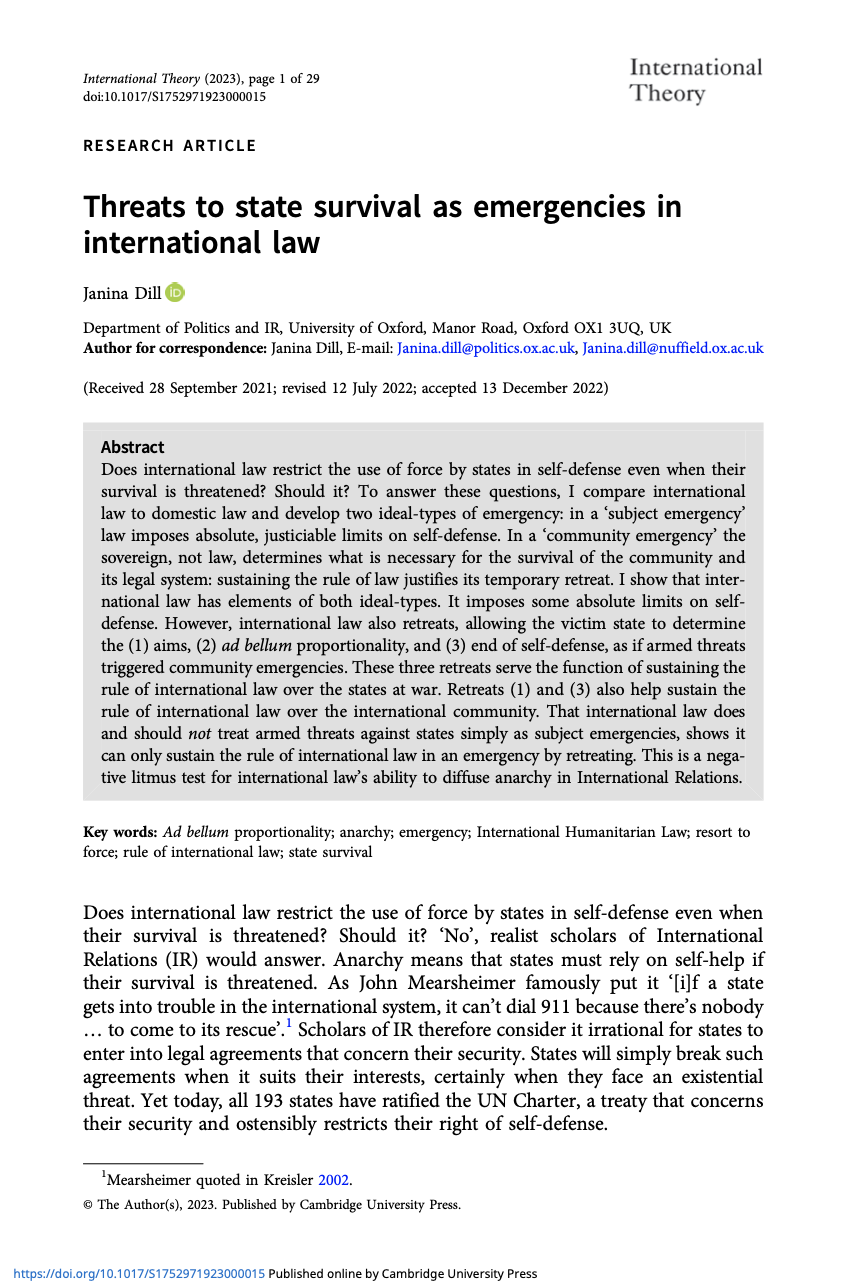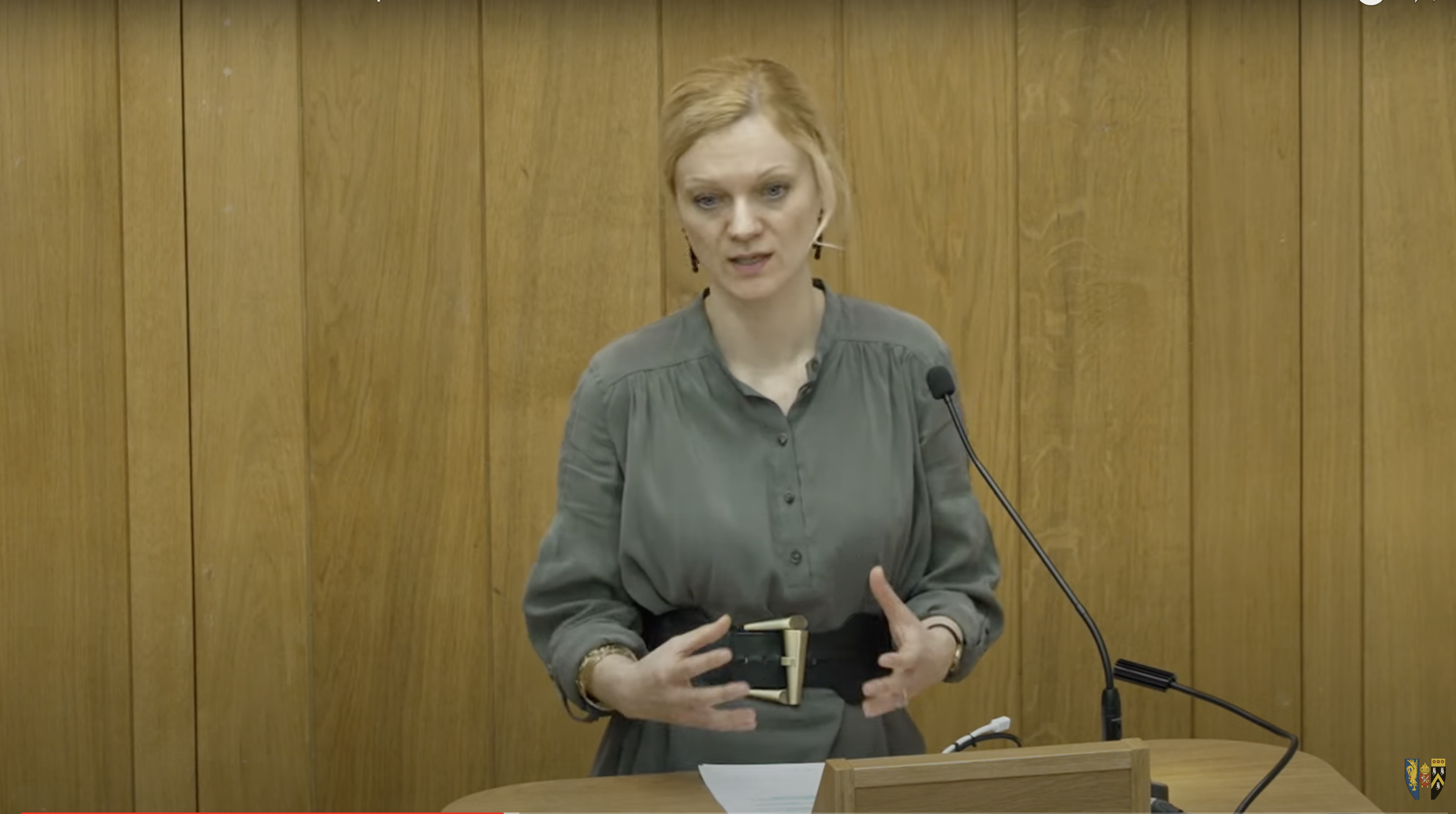ELAC Co-Director Janina Dill published a new article, Threats to State Survival as Emergencies in International Law in International Theory. The article asks: Does international law treat armed threats to states like domestic law treats individual self-defence (the ideal-type referred to as ‘subject emergency’) or like domestic law treats public emergencies (the ideal type referred to as ‘community emergency’)? In a ‘subject emergency’ law imposes absolute, justiciable limits on self-defense. In a ‘community emergency’ the sovereign, not law, determines what is necessary for the survival of the community and its legal system: sustaining the rule of law justifies its temporary retreat.
The article shows that armed threats to states have elements of both ideal types. International law imposes some absolute, justiciable limits on states’ right to self-defense, as we would expect in a subject emergency. These limits could in principle require that a state abandons effective self-defense. However, international law also retreats, allowing the victim state to determine the (1) aims, (2) ad bellum proportionality, and (3) end of self-defense, as if armed threats triggered community emergencies. I offer a functionalist explanation for these three retreats: Interpretations that uphold these three retreats serve the function of allowing the states at war to return to the rule of international law. This evokes the logic of a community emergency according to which a temporary retreat of the rule of law can sustain it in the long run.
Only two of the three mentioned retreats, however, are justified if the normative aim is sustaining the rule of international law over the international community. Dill argues that international law should not – according to the logic of a community emergency – prioritize state survival over the survival of the international community. She proposes a progressive interpretation of ad bellum proportionality to achieve this aim. The argument has implications for how we think about the role of international law in IR. Which ideal-type international law resembles is indicative of the status of states in international law as either subjects, like individuals under domestic law, or sovereign legal communities in their own right.





